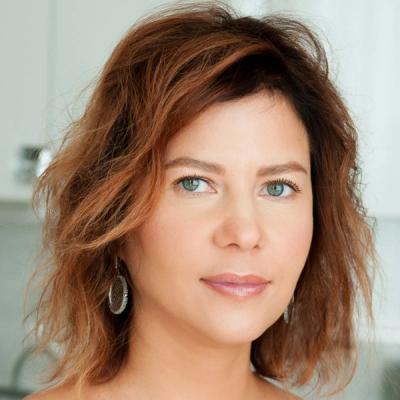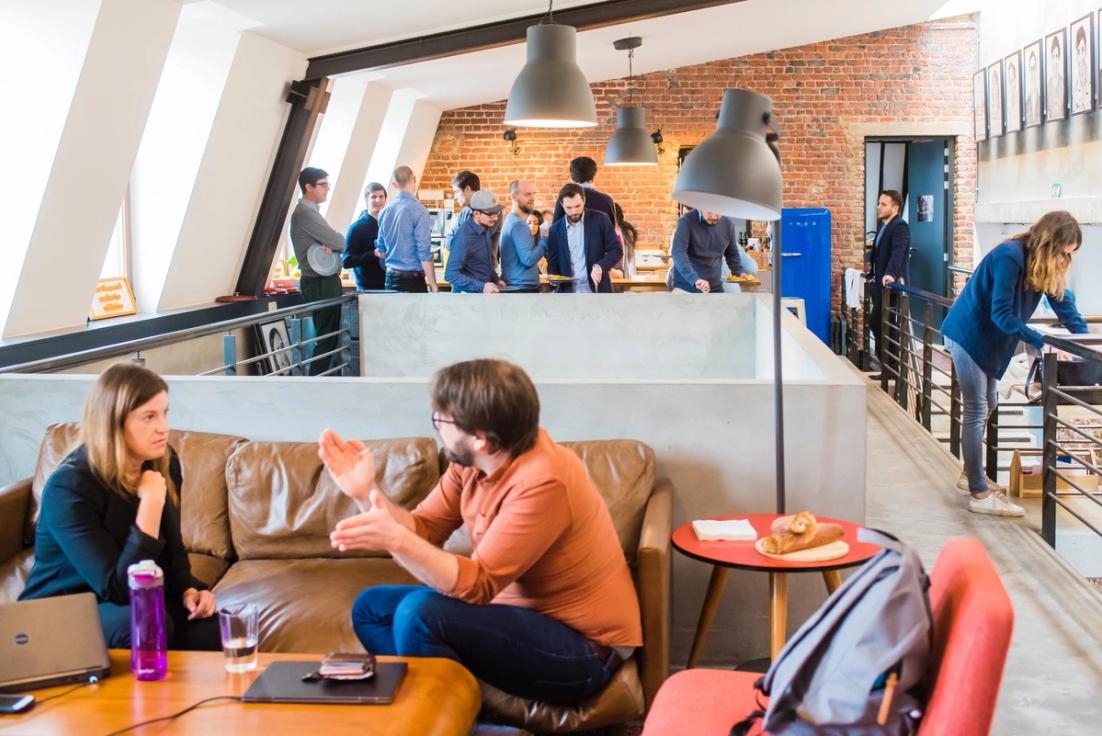Introduction
In this article, Eugenia, a business coach based out of Kyiv (Ukraine), walks us through how to best stay resilient while living through a tragic situation. Her own story of living in a warzone and still keeping up the work as a business coach is a testament to her own resilience, strength and courage. It shows us all a way to move forward, also when life shows itself from the darkest side.
Even in the face of tragedy, she is determined to get on with her life, her coaching profession, and even her hobbies. Eugenia has managed to find purpose and meaning in the middle of chaos, and has cultivated a sense of calm within herself.
In this conversation, we discuss how hardship can deepen your work and bring you new perspectives. We also discuss advice for coaches and people going through difficult times, the importance of values, and tips on how to manage your mental and physical state in hard situations. We hope you’ll be as inspired as we are by Eugenia’s strength, courage, and resiliency.
Interview
Niamh (Session):
Eugenia, thank you so much for agreeing to talk with us about helpful coping mechanisms in the midst of hardships. It’s hard to imagine what you’re experiencing right now living in a war zone and trying to maintain a somewhat normal life with your coaching business, family matters, a yoga practice and other activities. Can you tell us about the current situation in Kyiv and how you’re coping under these extremely difficult conditions?
Eugenia: First of all, the situation we find ourselves in is constantly developing and it’s different to what was happening in the first week, and even two weeks of the war. Unfortunately, even in the worst situation, we are somehow adapting to it. Of course, the first emotion we experienced was just total shock. Now, as I recall the outbreak of the war, some situations and facts are mixed up in my head, such as dates, times,etc. Emotions are alternating between certain things, such as worrying about safety, feeling of danger, hearing air raid sirens, sleeping all night at the shelter, etc. But at the same time, I'm thinking about more high-level thoughts: how could this happen, what factors contributed to it, and how did the world come to this terrible situation.
For me as a coach, I have quite a well developed skill of self-reflecting. But even for me, I questioned if I would ever be able to continue my profession - my coaching work. I had a feeling that very fundamental coaching grounds like human values, principles, and virtues were completely ruined, and as if I lost the grounds to stand on. Besides, being present, being able to manage my own emotions, is a very important part of the ethical code of coaching, as described in the ICF Core Values and Ethical Standards. So, at the beginning, my perception was that all of those things were completely destroyed, and that I would never get them back.
Niamh: Yes, it’s so hard to even imagine how you continue to face a regular day of work, because obviously your mind is so overwhelmed, distracted, and just horrified. So like you said, getting back on your feet again and trying to coach must have been so difficult.
Eugenia: Yes, but it’s important to remember that on February 24th 2022, (when the war broke out) nobody continued to work, everything just stopped. Except for critical infrastructure workers, that is. So my reflection was impacted by this. As of February 23rd, my working activity was very intense. I had six consulting and coaching projects as the main business and also successfully managed my own boutique yoga studio as a parallel activity. Everything just crashed and came to a complete halt. And a similar experience happened to the majority of people in Ukraine. My reflection around being able to coach was quite theoretical, quite hypothetical in such circumstances. Yet, I realized quite well that this was probably because of a desire to keep a feeling of control at least in my professional capacity for the future.
Niamh: Now that you are back to work, although not being able to coach and work like you did before, how are you coping?
Eugenia: Yeah, it’s a very good question. In the beginning, without clients or work, my intention first of all was to sort out all of my emotions, reflect on my values, and discover that painful experience. Honestly, besides the obvious external threats of war, the high level of anger and hate is our constant internal challenge now and requires significant efforts to overcome. To keep open eyes toward everything that is happening inside, embracing all emotions is very meaningful for me.
Secondly, I had to save, or even reinvent, what my approach to working and coaching was. It is not a secret for anyone from "helping professions" that the main focus of work in the midst of a tragic experience is to search for hope and perspective. Here my ability to find some kind of internal resources really helped me. Getting back to a ‘’normal’’ state of being was really effective for me, not for the sake of denying reality, but accepting things as they are and also being resourceful - with my friends, with my network, and so on. Eventually with time, as things started to stabilize for me a bit more, at least I could continue coaching.
Niamh: During one of Session’s coaching community meetings, you mentioned that having activities outside of work, such as art and yoga, has helped you cope. And it’s great to have a creative outlet as well as a physical outlet of expression. How important do you think having hobbies and activities is for helping people to cope in the midst of a crisis?
At the moment when everything happened, I fortunately was lucky enough to have a very strong discipline in yoga, because I have been regularly practicing for the past 20 years. Of course, for the first 7-10 days, it was not possible to practice, as we spent most of our time in the shelter. But as soon as I realized I could do something in between the air raid sirens at the moments we were back to our apartment, I started to renew my practice - which helped very much. Unfortunately, I still have not resumed my painting activity, because here it is more difficult to find inspiration. It’s as if I’ve lost the ability to see colors. Of course, intellectually I can still go through this, but it’s difficult to practice yet. I hope over time that I will come back to painting. But yoga, yes, meditation and breathing techniques have been so powerful. I only can encourage everyone to try these practices, to incorporate them into their routine, because in such a dangerous and disturbing situation, it really helps.
Niamh: Are there other mechanisms that might help you cope?
Eugenia: Absolutely, and I can give you an example. Recently, I had a conversation with my friend and colleague, who moved to another country a couple of years ago. We discussed the current situation with business in Ukraine, and I gave her an example of one of the very successful companies before the war which has now almost become bankrupt. Because of the war, critical logistics operations stopped, the revenue dramatically declined, and some warehouses were completely destroyed. Not to mention the fleeing of employees and clients. My friend mentioned that she thought the CEO of this company did not show up as a good leader. He didn’t make any timely statement about the situation, he practically disappeared, and in her opinion, this was not proper leadership behavior.
Normally, my friend and I often think in the same way, and I value her views very much. But here I realized how my perception is different. I noticed that I stopped considering the situation from the conceptual side of leadership. My reflection on this was that this person is a human being first of all. Remembering my own shock and fear I could just imagine how huge his shock might be, from realizing the scale of destruction of his business. I even could assume that the fact of a huge responsibility over thousands of people in his team might have played out controversially - falling into even more trouble instead of acting rationally. However, in this situation, I now empathized instead of judged. My level of empathy and humanity had changed. So another coping mechanism, in the midst of hardships, is not to be so quick to judge a situation. Instead, try to empathize and understand!
Niamh: I love that example. It shows how you’re evolving with your thought process, and even having the ability to have more empathy in these kinds of situations.
Eugenia: Yes, exactly. This example is about feeling the complexity and the depth of such a tragic situation in which this person found himself in it. It helps you empathize and understand better.
Niamh: Yes, it’s important to remember the complexity and many layers to consider, it’s not just a black and white situation.
Eugenia: Yes, of course.
Niamh: Another question I wanted to ask you is in relation to values. What has happened with your values, living through these experiences lately, and what can this teach us about how to better cope in times of difficulty?
Eugenia: This war highlighted our value system very much, and I think that it’s very important for everyone to reassess, to rethink their value system. For example, for me it was the decision whether to stay or leave the country and my city; stay with my husband who was not allowed to leave the country, or leave to join my son in Europe. That was unfamiliar before the level of choice between risk and safety. In life, your values can bring you more awareness, and a deeper understanding of yourself. For me personally, once I re-figured what was important to me, it didn't make me happy, but I at least felt calmer, more grounded.
Secondly, reflection itself has been so important. As we know, reflection is an inward-looking skill. In my case, it really helped my ability to structure my thoughts around fear. Putting different aspects of fear into different so-called boxes made the feelings more manageable, the understanding of own boundaries of compromise more clear, and the adaptability more accessible. So I think that everyone would benefit from keeping and stimulating reflection even in hardship to protect from falling into super-reacting mode where they act out of control or in unwanted ways. This is, btw, what is meant by staying assertive.
Niamh: Yes, and I love how you mention how getting clear on your values is helpful. It’s not going to make everything magically better, but at the least it’s helping you to feel calmer.
Eugenia: Yes, and it helps when you can’t understand quite what to do. Once you get clear on these things, they can help to navigate your actions too. And once you realize what is a navigator for you, you are far more aware of what concrete actions to take.
Niamh: Yes, that’s so true. You’ve been handling this situation with such courage and wisdom, Eugenia, so I’m wondering what advice would you give to others who find themselves in similar hardships?
Eugenia: That’s a great question. In the initial stages when I was questioning my coaching as a profession, it is important to understand that it was driven by a specific context. At that moment I was assuming everything - loss of country, loss of housing, many other losses which are even scary to pronounce, and overall the loss of perspective. The loss of my profession was sitting in my mind as an idea of total disillusionment in its nature in connection with the fact that such a war happened at all. One day I realized that my profession is what I can control the most in that row from the point of view of saving and managing my state (as the main instrument of my work). This awareness happened to be what we call a shift in coaching. I made a choice to be double-mindful of my state for the sake of avoiding disillusionment and saving my ability for the future. My advice and to fight for your professional identity, because it’s what you have, regardless of your situation, this is your asset. For me, it was important not to include my profession in the list of losses, and thus to fight for re-inventing my professional perceptions.
Niamh: I love that advice, to keep fighting for your profession.
Eugenia: Yes, and also finding new ideas within your profession, and yes, just keep going with it. And I just want to specify that now I am not in the worst situation, as I am staying in Kyiv, the capital, and with all the danger here, it anyway seems safer than in some other parts of Ukraine. Unfortunately, there are people in Ukraine who are in much, much, much worse situations, and I can only imagine all the horror of their hardship. The sad lesson of this war is also in the idea that now it is worth accurately distinguishing the extent of hardship in order to be adequate and sensitive to real people's feelings.
In general, I would say that in the beginning, we do what we can. But with time, we already have to do what we must. We can't predict when that will end and what the price will be. It requires stamina. So I would suggest using all that you have. Don’t underestimate the simplest things, like having a routine. Waking up, going to bed, eating, exercising…so everything that can structure your day creates a sense that you can manage your life at least to some extent. And once you can control it, you are not weak. I think everyone can build on these kinds of ideas.
Niamh: Yes, I agree. I think sometimes the simplest things are the most effective, whether it’s trying to get your sleep under control, what you eat, exercising - all of those basic things that we need as humans, the obvious ones - are so important.
Eugenia: Yes, exactly.
Niamh: Eugenia, thank you so much for this conversation, you are an inspiration and have taught us so much.
For more resources on this topic, you might also find this article helpful, in which Pernille Brun reflects on the art of healing, following a spinal cord injury last year. Also, take a look at our article on mental health at work.











